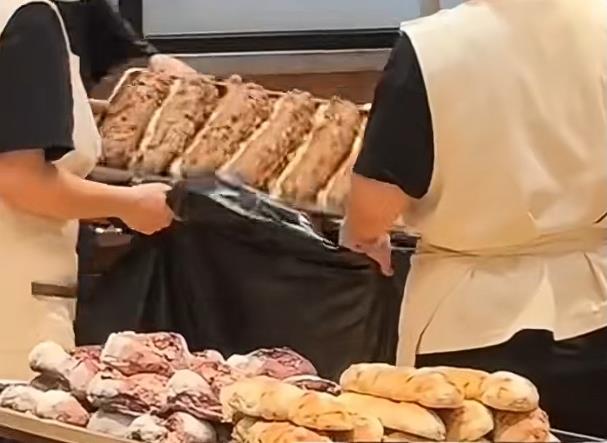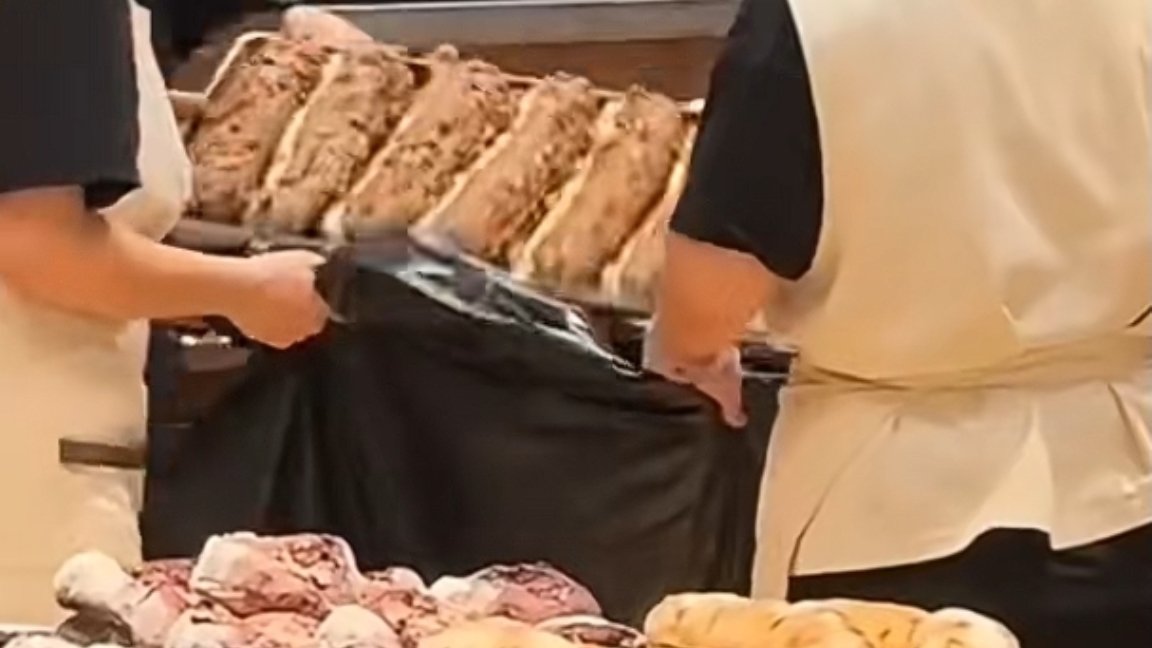

A screenshot shows unsold bread being discarded into a garbage bag.
There has been significant attention surrounding footage of an Internet-famous bakery that discards a substantial quantity of unsold bread into garbage bags at the end of the day.
The Shanghai MixC bakery staff refused to sell such food at a discount or donate it to needy people. The shop does not sell overnight food, so any unsold bread is thrown away in the garbage can at the end of the day.
While one shop chief blamed the unusual waste that day on a misguided prediction of sales, which was attributed to bad weather, the staff seemed to have no other options.
The bakery explained that normally waste stands at 3-5 percent and pledged to take measures to ensure that waste of this scale does not happen.
While some praised the bakery for adhering to rules that ensure consumers receive fresh products, others suspected it was a marketing ploy; however, many citizens believe there are more effective ways to handle unsold food.
Of course, the food could be sold at a discount towards the end of the day, a boon to the needy people, the environment, and the business.
Some more imaginative individuals also suggest that the shop could enhance this process by adopting a method used by a community canteen in Liangcheng Xincun, where unsold food is packaged into mystery meal boxes, and purchasers have no idea what they will receive until after paying the uniform price of 10 yuan (US$1.4) per parcel.
But all are gratified at having a full meal at such an affordable price.
Additionally, it saves the canteen the additional cost of waste disposal and minimizes the adverse impacts on the environment.
It should also be pointed out that, in some developed countries, while the expiry date for such food as baby formulas can be mandatory, the Best By Date indications for other food are intended to provide individuals and retailers a metric to assess edibility.
It provides transparency in the supply chain without arbitrarily requiring food disposal, allowing charitable individuals, businesses, and non-profits to donate safe, near-expiry food to specific individuals or organizations.
Apparently, tossing near-expiry into the dustbin is not the best means of disposal.

